Contents
- 0.1 Solo Camping Challenges
- 0.2 Tips to Overcome Solo camping Challenges
- 1 Conclusion
Solo Camping Challenges
Solo camping is an adventure like no other, offering the opportunity to immerse oneself in nature’s tranquility and find solace in the wilderness. For many outdoor enthusiasts, the allure of venturing into the great outdoors alone is irresistible, providing a chance to disconnect from the hustle and bustle of daily life and reconnect with oneself. However, embarking on a solo camping adventure comes with its own set of challenges that test one’s physical, mental, and emotional resilience. . From navigating unfamiliar terrain to facing unexpected obstacles, solo campers must be prepared to overcome a variety of hurdles to ensure a safe and enjoyable experience.

In this comprehensive guide, we’ll delve into the myriad challenges faced by solo campers and explore strategies for tackling them head-on. From safety concerns to logistical obstacles and emotional trials, we’ll cover everything you need to know to embark on a solo camping adventure with confidence and preparedness.
1. Safety Concerns
Share Your Plans
Before heading out into the wilderness alone, make sure to share your itinerary with a trusted friend or family member. Let them know where you’ll be camping and when you plan to return. This way, if you encounter any difficulties or fail to return as scheduled, someone will know to raise the alarm and initiate search and rescue procedures if necessary.
Know the Terrain
Research the area where you’ll be camping beforehand to familiarize yourself with the terrain, potential hazards, and any wildlife encounters you may encounter. Understanding the environment you’ll be navigating can help you better prepare for the challenges ahead and minimize the risk of getting lost or encountering dangerous situations.
Dealing with Wildlife
Encounters with wildlife are a common concern for solo campers. It’s crucial to familiarize oneself with the local fauna and follow proper protocols for storing food and disposing of waste to minimize the risk of attracting animals. Carrying bear spray or a whistle can provide added protection in case of unexpected wildlife encounters.
Safety Gear
Safety should always be the top priority for solo campers. Adequate preparation and the right equipment can make all the difference in ensuring a safe and enjoyable trip. Essential safety gear includes a reliable tent, sleeping bag, first aid kit, navigation tools, and emergency communication devices.
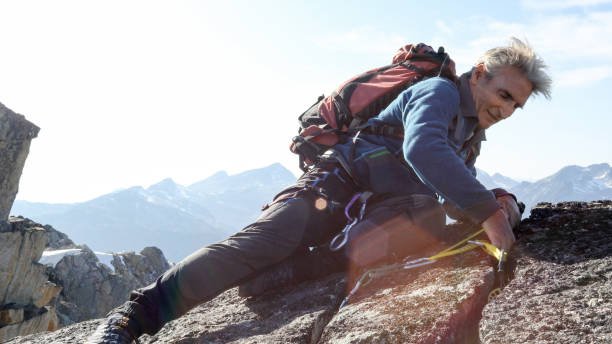
2. Logistical Challenges
Packing Essentials
Packing efficiently is crucial for solo campers, as every item carried adds to the overall weight and bulk. Prioritize lightweight, multi-purpose gear and pack only the essentials to minimize the load. Consider factors such as weather conditions, terrain, and the duration of your trip when selecting gear. Make a checklist and double-check your supplies before heading out to ensure you haven’t forgotten anything crucial.
Meal Planning and Food Storage
Proper nutrition is essential for maintaining energy and stamina during solo camping trips. Plan your meals ahead of time and pack lightweight, non-perishable foods that are easy to prepare. Consider options such as dehydrated meals, energy bars, nuts, and dried fruits. Minimize waste by repackaging food into smaller portions and disposing of packaging before you head out. Practice proper food storage techniques to prevent attracting wildlife to your campsite, such as hanging food bags from a tree branch or using bear-proof containers.
Navigation and Route Planning
Navigating unfamiliar terrain can be intimidating for solo campers, especially in remote wilderness areas. Before setting out, thoroughly research your route and familiarize yourself with maps, trail markers, and landmarks. Use GPS devices or smartphone apps to track your location and progress along the trail. Plan your route carefully, taking into account factors such as elevation gain, water sources, and potential hazards. Leave a detailed itinerary with a trusted friend or family member and stick to your planned route as much as possible.
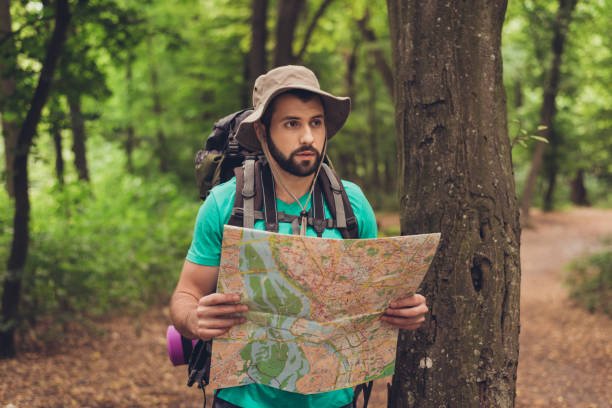
3. Environmental Challenges
Weather Conditions
Solo campers must be prepared to face a variety of weather conditions, ranging from scorching heat to torrential downpours. Check the weather forecast before your trip and pack appropriate clothing and gear to stay comfortable in all conditions. Additionally, be mindful of potential hazards such as lightning and flash floods and have a plan in place to seek shelter if necessary.
Climate Change Impacts
Climate change is altering ecosystems and weather patterns around the world, impacting the wilderness areas that solo campers rely on for adventure. Be aware of the potential effects of climate change on your chosen destination, such as increased wildfire risk, changes in precipitation patterns, and habitat loss for wildlife. Take steps to minimize your carbon footprint while camping, such as reducing waste, conserving water, and choosing sustainable transportation options.
Leave No Trace Principles
Responsible camping practices are essential for minimizing environmental impact and preserving the wilderness for future generations. Adhere to Leave No Trace principles by properly disposing of waste, minimizing campfire impacts, and respecting wildlife and vegetation. Leave your campsite cleaner than you found it to ensure that others can enjoy the same pristine wilderness experience.
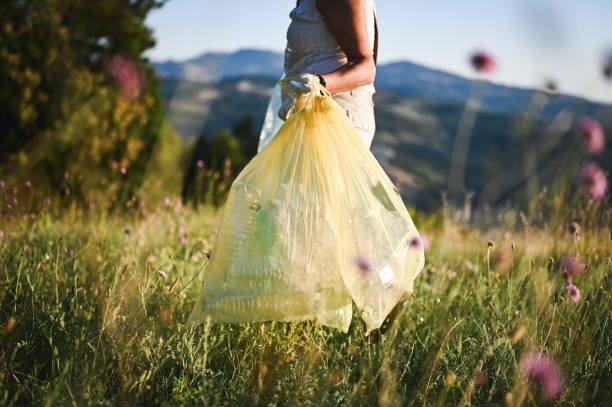
4. Emotional Challenges
Coping with Loneliness
Solo camping can evoke feelings of isolation and loneliness, especially during long stretches of solitude. Stay connected with loved ones through regular check-ins via satellite phone or messaging device. Engage in activities that bring you joy, such as journaling, photography, or stargazing, to maintain a positive mindset.
Mental Preparation
Mental fortitude is essential for overcoming the challenges of solo camping. Practice mindfulness and meditation techniques to stay grounded and centered amidst the uncertainties of the wilderness. Cultivate a mindset of resilience and adaptability, knowing that each challenge presents an opportunity for growth and self-discovery.
Building Confidence
Confidence comes from experience and competence, so take every opportunity to build your outdoor skills and knowledge. Start with shorter solo camping trips close to home before tackling more ambitious adventures in remote wilderness areas. Practice essential survival skills such as building a fire, purifying water, and navigating with a map and compass. Surround yourself with a supportive community of fellow outdoor enthusiasts who can offer encouragement and advice as you embark on your solo camping journey.
Fear of the Unknown
Facing the unknown can be daunting for solo campers, especially when venturing into unfamiliar wilderness areas. Acknowledge your fears and concerns, but don’t let them hold you back from pursuing your outdoor dreams. Educate yourself about the risks and hazards of solo camping and take steps to mitigate them through careful planning and preparation. Trust in your abilities and rely on your instincts to guide you safely through any challenges that arise.
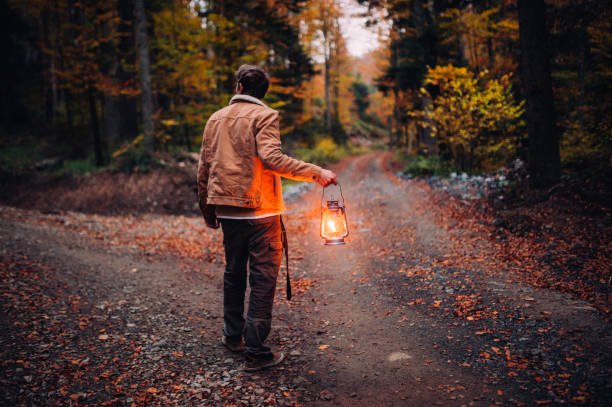
5. Physical Challenges
Endurance and Stamina
Solo camping often requires long hikes with heavy packs, testing one’s endurance and stamina. Start with shorter trips and gradually increase the difficulty as your fitness level improves. Stay hydrated, fuel your body with nutritious meals, and listen to your body’s signals to prevent overexertion and injury.
Injury Prevention
Injuries can quickly escalate into emergencies when camping alone, making injury prevention a top priority. Wear sturdy footwear to protect your feet from blisters and sprains, and use trekking poles to provide stability on uneven terrain. Practice proper lifting techniques when handling heavy gear to avoid strains and muscle fatigue.
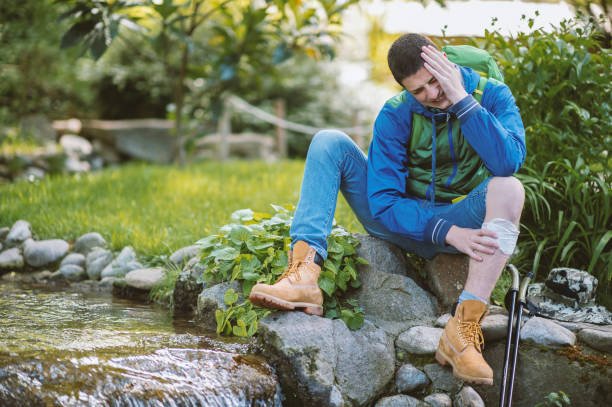
Rest and Recovery
Rest and recovery are essential for preventing burnout and injury during solo camping trips. Listen to your body and prioritize adequate sleep and rest breaks to recharge your physical and mental batteries. Set up camp early in the day to allow plenty of time for relaxation and downtime before nightfall. Practice gentle stretching or yoga to alleviate muscle tension and improve flexibility after a long day of hiking.
Tips to Overcome Solo camping Challenges
1. Overcoming Fear and Anxiety
Building Confidence
Confidence comes from experience and competence, so take every opportunity to expand your outdoor skills and knowledge. Enroll in wilderness survival courses, practice building shelters and starting fires, and seek out mentors who can provide guidance and support. The more confident you feel in your abilities, the more prepared you’ll be to tackle solo camping challenges head-on.
Positive Self-Talk
The way you talk to yourself can have a significant impact on your mindset and emotional well-being. Replace negative self-talk with positive affirmations and reminders of your strengths and capabilities. Remind yourself of past successes and challenges you’ve overcome, and visualize yourself handling difficult situations with confidence and composure. Reframe fear and anxiety as excitement and anticipation, and focus on the exhilaration of embarking on a solo camping adventure.
Facing Unknown Situations
The unpredictability of the wilderness can trigger fear and anxiety in solo campers. Cultivate a sense of self-reliance by honing your outdoor skills and learning how to troubleshoot common camping challenges. Trust in your abilities and remain calm in the face of adversity, knowing that you have the knowledge and resources to overcome any obstacle.
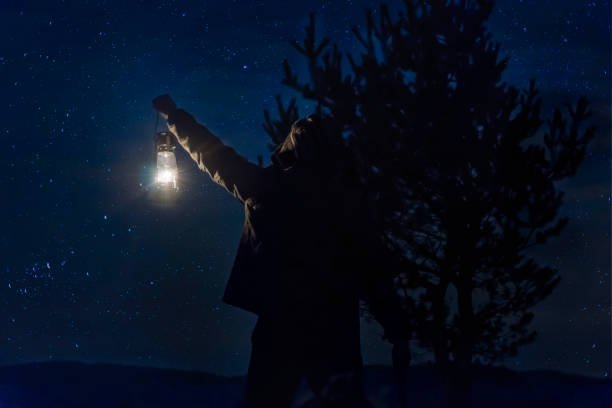
2. Strategies for Success
Setting Realistic Goals
Set achievable goals for each solo camping trip, taking into account factors such as terrain difficulty, weather conditions, and personal fitness level. Start with shorter outings close to home before tackling more ambitious adventures in remote wilderness areas. Celebrate your accomplishments and learn from any setbacks to continually improve your skills.
Adaptability and Problem-Solving
Flexibility is key when navigating the uncertainties of solo camping. Be prepared to adjust your plans in response to changing weather, trail conditions, or unforeseen obstacles. Approach challenges with a problem-solving mindset, brainstorming creative solutions and drawing on past experiences to overcome adversity.
Plan Thoroughly
Thorough planning is key to a successful solo camping trip. Research your chosen destination extensively, including weather conditions, terrain, wildlife, and regulations. Create a detailed itinerary that includes route maps, emergency contacts, and contingency plans for unexpected situations. Pack essential gear, food, and supplies, and double-check everything before you head out. By planning ahead, you’ll be better prepared to handle any challenges that arise along the way.
Know Your Limits
While solo camping offers the opportunity to push your limits and expand your comfort zone, it’s essential to know your own capabilities and limitations. Be honest with yourself about your physical fitness, outdoor skills, and comfort level with solitude. Start with shorter trips close to home and gradually increase the difficulty and duration as you gain experience and confidence. Listen to your body and intuition and know when to push yourself and when to dial back and take a break.
Also Read: Solo Camping Benefits
3. Community and Support
Connecting with Fellow Campers
While solo camping offers solitude, it’s essential to stay connected with the outdoor community for support and camaraderie. Join online forums or social media groups dedicated to camping and outdoor adventure to share tips, stories, and encouragement with like-minded individuals. Attend local meetups or group hikes to forge friendships and build a network of fellow outdoor enthusiasts.
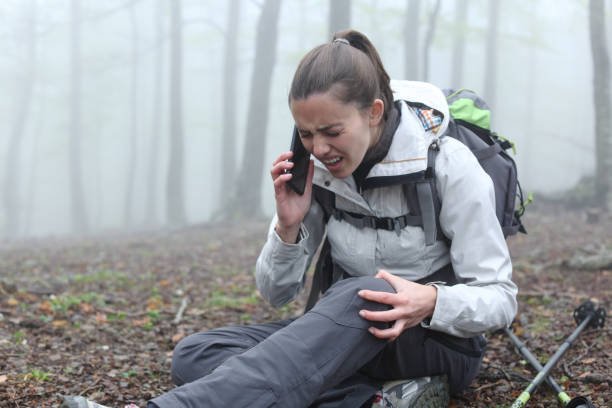
Seeking Help When Needed
Despite careful planning and preparation, emergencies can still occur while solo camping. Know when to call for help and have a contingency plan in place for summoning assistance. Carry a personal locator beacon or satellite messenger device and familiarize yourself with emergency protocols for your chosen destination. Trust your instincts and prioritize your safety above all else.
Conclusion
Solo camping offers a unique opportunity for personal growth, self-discovery, and adventure in the great outdoors. By connecting with fellow campers, seeking help when needed, and embracing the challenges and joys of solo camping, you can embark on a rewarding and transformative outdoor adventure that will stay with you for a lifetime.


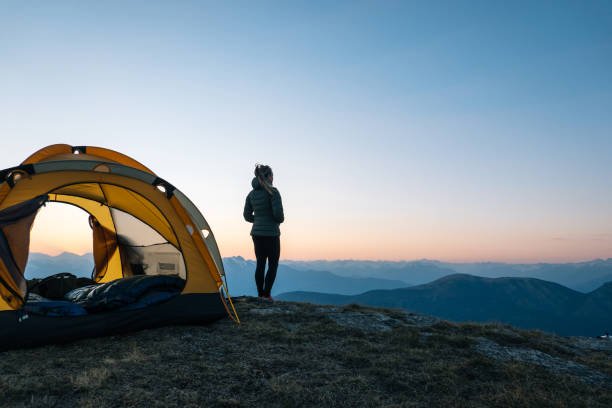
Pingback: 5 Health Benefits of Camping - The World Camping